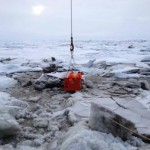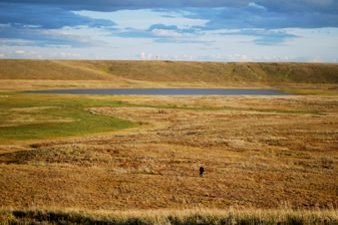Post added that greater accessibility of previously remote parts of the Arctic to human exploration could be yet another unexpected consequence of sea-ice loss. “Retreating sea ice, longer ice-free seasons, and loss of sea ice are expected to promote development of shipping lanes and increased shipping traffic in areas that formerly were rather inaccessible,” Post said. “This increased marine access likely will accelerate the pace of mineral and petroleum exploration in the Arctic, which in turn could affect both terrestrial and marine animals; for example, bowhead whales and Pacific walrus.”
In addition to Post, other researchers who contributed to this review article include Jeffrey Kerby, a graduate student in the ecology program at Penn State; Uma Bhatt and Donald A. Walker from the University of Alaska in Fairbanks; Cecilia Bitz from the University of Washington; Jedediah Brodie from the University of British Columbia in Vancouver, Canada; Tara L. Fulton from the University of California in Santa Cruz; Mark Hebblewhite from the University of Montana; Susan Kutz from the University of Calgary; and Ian Stirling from the University of Alberta in Edmonton, Canada.
The research was funded by the U.S. National Science Foundation (NSF) and also was supported, in part, by the Polar Center at Penn State through the Penn State Institutes of Energy and the Environment.

Check the following link to read/download the Full Study – “Ecological Consequences of Sea-Ice Decline”:
http://www.sciencemag.org/content/341/6145/519.abstract
Source: By Katrina Voss, The Pennsylvania State University.













